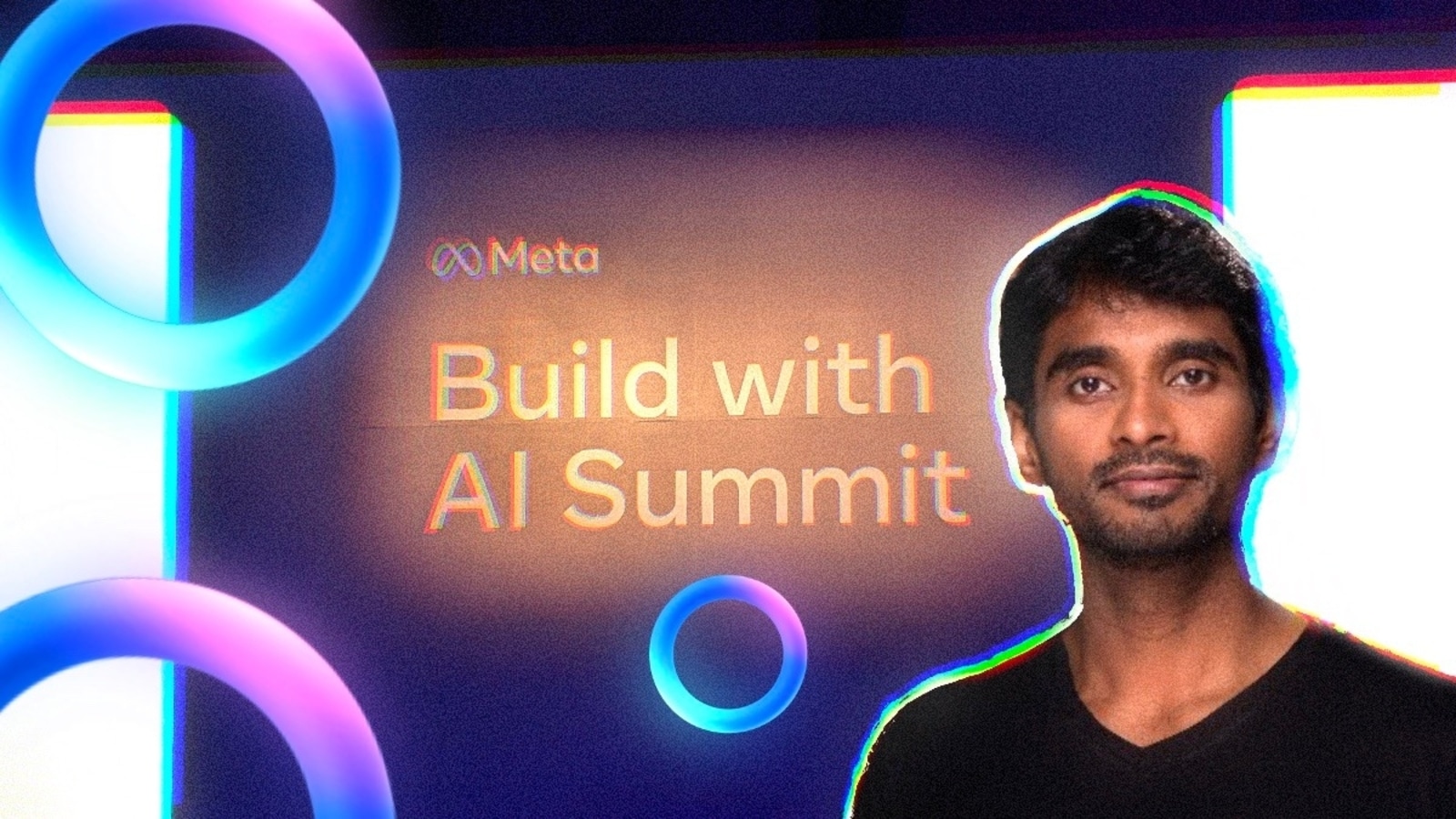Meta is one of the few companies that has embraced an open-source design for its artificial intelligence models family, Llama, and has successfully integrated these models into consumer-grade apps like WhatsApp, Instagram, and more. This was a key message at Meta’s Build With AI Summit, held in Bengaluru on October 23. Meta AI was launched in India earlier this year, in June, and since then, millions of WhatsApp, Instagram, and Messenger users have used it within these apps’ user interfaces. In fact, it’s visible as soon as you open WhatsApp, right above your messages.
This integration is what sets Meta apart from competitors like ChatGPT and Gemini, offering an AI bot directly within WhatsApp, which has hundreds of millions of users in India. To explore this alleged advantage, Hindustan Times Tech’s Shaurya Sharma spoke exclusively to Manohar Paluri, VP, AI at Meta. Paluri also emphasised how Llama, as an open-source family of models, could power India-centric use cases.
Edited Excerpts:
When it comes to Meta’s AI apps like WhatsApp, Meta AI is organically available—it is right there when you open WhatsApp. Now, compared to chatbots like ChatGPT, which require additional steps such as downloading the app from the Google PlayStore/App Store, for a country like India, is this ease of use a major advantage? And could this help Meta penetrate a larger user base in India?
“The mission is to connect people and provide the best products to connect them to information and each other. The advantage of Meta AI isn’t just the performance of the Llama engine, but also its availability on apps people already use. It brings utility and expands possibilities,” Manohar Paluri, VP, Meta said.
Paluri described how something as basic as bedtime stories can be transformed using Meta AI, instead of being confined to printed storybooks. He said, “I have a five-year-old and a four-year-old, and at night we tell them stories. They pick their favorite phrase, and then I immediately use Meta AI to imagine that phrase, and then the world is your imagination.”
Paluri says that another major advantage with Meta AI is the ability to invoke it in group chats. This allows for real-time information gathering and debunking within the conversation. “It becomes an important way to educate and inform,” he said.
“So one of the advantages is not just the distribution of it—that definitely helps Meta, and helps Llama to become a better model, but it also increases the utility of WhatsApp. This also makes WhatsApp such a powerful tool in the country right now; Instagram is such a powerful creative tool as well (for the same reasons). I think it’s a great advantage for the app and the user.”
Also Read: Samsung Galaxy S25 series likely to be powered by Snapdragon 8 Elite processor
Many companies are starting to provide on-device AI—OpenAI has partnered with Apple and GoogleAI is seen in Samsung phones. In the future, could Meta partner with an Android OEM, with Llama as the default AI model?
“We want Llama to be the Linux of intelligence. From that perspective, it aligns with our overall open-source strategy, and taking the open source strategy, many OEMs can do this. In fact, many of the chipset makers, such as Qualcomm and MediaTek are using Llama.”
Manohar Paluri on Llama’s open-source nature and its India-centric uses
Manohar Paluri explains that Meta designed Llama 2 with an open-source, developer-centric philosophy, aiming to enable the creation of practical applications that can positively impact sectors like education and agriculture in India.
“When we released Llama 2, we changed the license to be commercially usable because of that specific license, so everybody can build on top of it and use it. There was a family of models that were both pre-trained and post-trained. The post-trained models can be used to build a chatbot, and so on and so forth,” Paluri said.
“India is possibly in the top three in terms of Llama downloads. It’s also in the top two in terms of the number of developers here. The appetite for technology and the eagerness of people to adapt to new technology in this part of the world is amazing. So it’s a perfect mix for us to be here to learn and also to see all the use cases. “
Also Read: AIO liquid cooling kit for CPU: What is it and which one to buy under ₹5000
Paluri added, “I can go through many, many use cases; we can follow up on all the specific Indian use cases, but the couple that are really inspiring to me… One of them is the Pratham example. It’s a non-profit for education. We all know that literacy and education really change the game for any country, and we have a ways to go in terms of making progress. Pratham is an example where they are actually using this foundational technology. That was one. There are a couple of other examples that we can go through. One example was a farmer using this technology in a native language and getting the best information on agriculture that previously was not feasible or accessible because of Llama. These are a few examples that just inspire you.”







